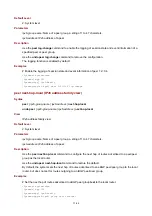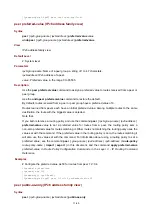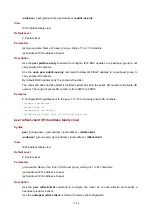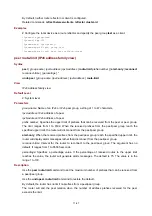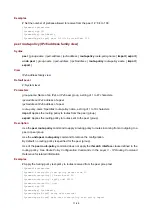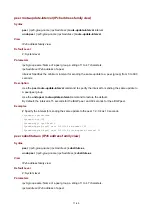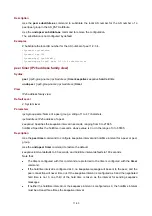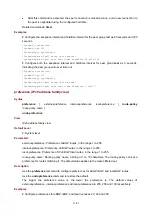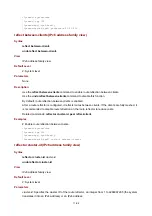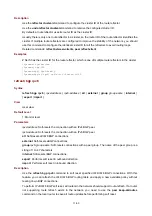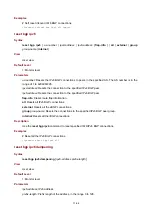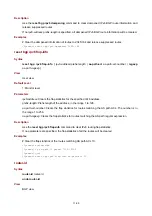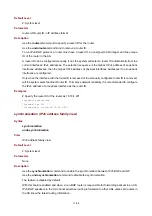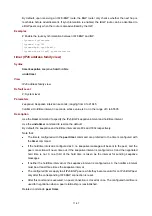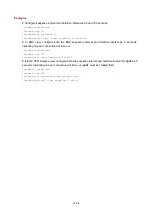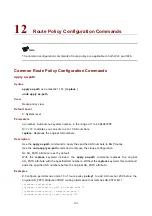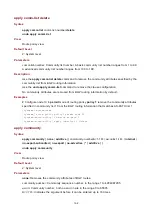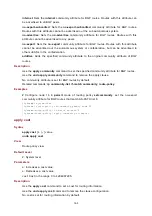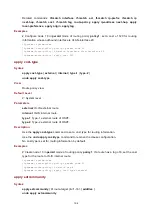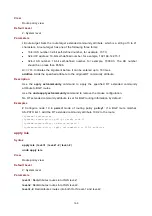
11-48
Examples
# Set the number of prefixes allowed to receive from the peer 1:2::3:4 to 100.
<Sysname> system-view
[Sysname] bgp 100
[Sysname-bgp] ipv6-family
[Sysname-bgp-af-ipv6] peer 1:2::3:4 route-limit 100
peer route-policy (IPv6 address family view)
Syntax
peer
{
group-name
|
ipv4-address
|
ipv6-address
}
route-policy
route-policy-name
{
import
|
export
}
undo peer
{
group-name
|
ipv4-address
|
ipv6-address
}
route-policy
route-policy-name
{
import
|
export
}
View
IPv6 address family view
Default Level
2: System level
Parameters
group-name
: Name of an IPv4 or IPv6 peer group, a string of 1 to 47 characters.
ipv4-address
: IPv4 address of a peer.
ipv6-address
: IPv6 address of a peer.
route-policy-name
: Specifies route-policy name, a string of 1 to 19 characters.
import
: Applies the routing policy to routes from the peer (group).
export
: Applies the routing policy to routes sent to the peer (group).
Description
Use the
peer
route-policy
command to apply a routing policy to routes incoming from or outgoing to a
peer or peer group.
Use the
undo peer route-policy
command to remove the configuration.
By default, no routing policy is specified for the peer (group).
Use of the
peer route-policy
command does not apply the
if-match interface
clause defined in the
routing policy. See
Route Policy Configuration Commands
in the
Layer 3 - IP Routing Command
Reference
for related information
.
Examples
# Apply the routing policy test-policy to routes received from the peer group test.
<Sysname> system-view
[Sysname] route-policy test-policy permit node 10
[Sysname-route-policy] if-match cost 10
[Sysname-route-policy] apply cost 65535
[Sysname-route-policy] quit
[Sysname] bgp 100
[Sysname-bgp] ipv6-family
[Sysname-bgp-af-ipv6] group test external
[Sysname-bgp-af-ipv6] peer test route-policy test-policy import











